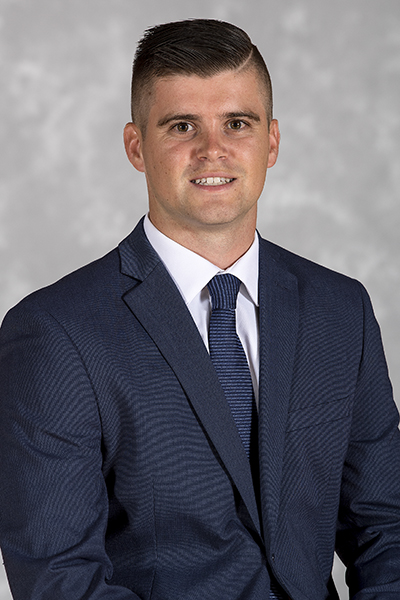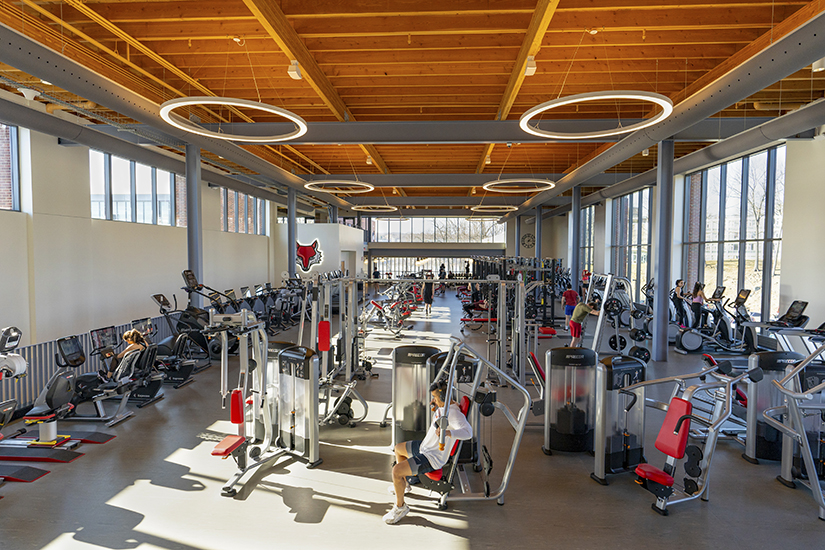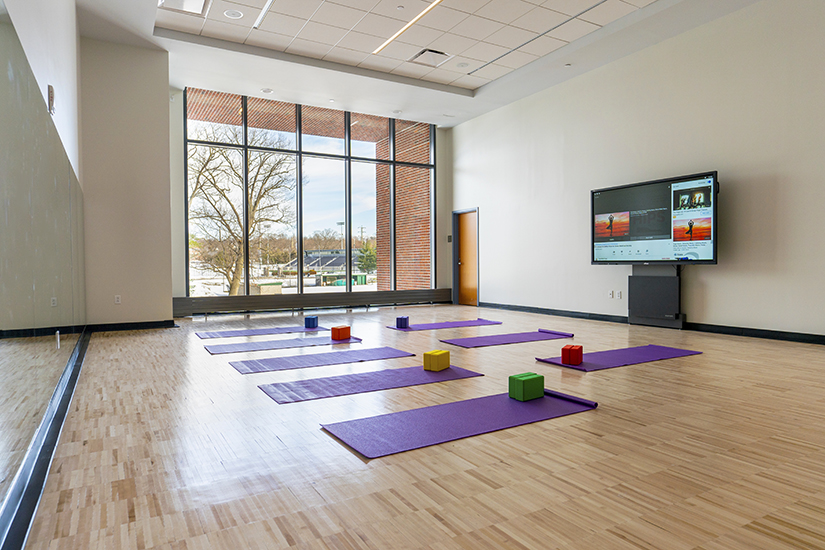|
Getting your Trinity Audio player ready...
|
When Zak Harkenrider was in seventh grade, he dreamed of going to Syracuse University to be a part of its legendary sports program, and as a teen, even sent a letter to the school talking about his interest in the sports management track.

“I knew this is what I wanted to do way back then, and colleges always interested me, so I knew I wanted to work in college sports,” he recounts. “As I got older, I saw some other programs and eventually landed on SUNY Cortland, which I thought would be a great path for what I wanted to do.”
Harkenrider graduated from SUNY Cortland in December 2015 with a bachelor’s degree in sports management, which led him to Poughkeepsie, New York-based Marist College in 2016 to pursue his MBA. During the program, he worked as a grad assistant in the athletic facilities department.
His draw to the home of the Red Foxes makes sense—Marist is a member of NCAA’s Division I that sponsors more than 20 collegiate sports, many of which compete in the Metro Atlantic Athletic Conference.
After earning his MBA in 2018, Harkenrider is now in his fifth year with Marist College’s athletic department and serves as the assistant athletic director of facilities and operations, supervising game day operations for volleyball, baseball, softball, and special events as well as assisting with football and basketball game operations.
“I hire student workers, work with the visiting team coming in, reach out to the officials beforehand, welcome everyone, and show them the layout of everything,” he explains. “I spend a lot of my time planning how things are going to run.”

For example, when deciding the hours that each gym should be open, Harkenrider examines swipe reports to gather data about times of peak usage then uses this to devise practical solutions. He also coordinates with the facilities department to keep everyone aligned on when the AC or heat should be turned on, and the security team so there are no misunderstandings about when facilities need to be accessible or locked.
The assistant AD also supervises the daily operation of the four fitness centers on campus, most notably the renovation of the 60,000-square-foot James J. McCann Center, which originally opened in the 70s.
“We tore this down and built two separate weight rooms, one specifically for varsity athletes and the club teams who were going there at night, and the top floor would be for all the other students, separating the two and giving each their own space,” Harkenrider says of the 2019 expansion. “We also added a turf room where football can go and train, or soccer players can run a game.”
The center also features two basketball courts and multipurpose rooms for dance, yoga, and other fitness class activities. Students can even book physical therapy sessions in a devoted space for PT that’s attached to the gym.

Harkenrider also played an active role in the creation of the McCormick Hall Fitness Center, the renovation and expansion of the Marketplace Fitness Center, and creation of the Leo Hall Fitness Center—a far jump from just one fitness center when the assistant AD first took his role. Today, he is charged with overseeing every aspect that make all four fitness centers run.
“A lot of my day-to-day responsibilities are working with student workers and using them as my boots on the ground to make sure all the equipment works and letting me know of any issues,” Harkenrider explains. “I’m working with outside vendors, dealing with replacing equipment, working on any electrical issues and any building issues that pop up.”
Even off the clock, sports play a big part in Harkenrider’s life, and his role as a basketball referee feeds into his passion for athleticism, community involvement, and personal development. Plus, it’s a great outlet for him to stay active after a long day in the office.
“It started out as a side job in college and morphed into more of a regular thing, starting out with modified middle school basketball, moving into high school basketball, and now college division III basketball,” he says. “No ref is perfect, and you’re constantly learning rules and learning how to communicate with coaches and players, and that always interested me because I’m constantly learning and constantly growing.”


